You can credit President Donald Trump with a certain consistency. The first trip he took abroad during his first term was to Saudi Arabia. His first trip abroad in the current term was also to Saudi Arabia. And he expressed the same sentiments each time.
“We are not here to lecture,” Trump said upon landing in Riyadh in May 2017. “We are not here to tell other people how to live, what to do, who to be, or how to worship.” What a relief that had to be to dictators. In their minds, it’s their job to tell other people how to live, what to do, etc.
In May 2025, Trump reassured his listeners that the United States would not be giving them “lectures on how to live” or how to govern their “own affairs.” No, the peoples of the Middle East would be charting their “own destinies.”
That sounds good. But will ordinary people have any say in these destinies? Or will the dictatorships that rule them do the charting?
For generations, we Americans have had arguments over our foreign policy: Should it include a moral component or not? Evidently, Trump has not made up his mind, so we cannot credit him with consistency across the board.
Five days after returning from the Middle East, he met with South African President Cyril Ramaphosa in the Oval Office. There, Trump expanded on his repeated charge that South Africa is committing genocide against its white citizens. The charge is false, as The Dispatch’s Peter Gattuso explained in a fact check.
But other charges of genocide are valid. Vladimir Putin is trying to wipe out Ukrainian nationhood, and as many Ukrainians as he finds necessary. The U.S. State Department has declared Beijing’s persecution of the Uyghurs a genocide. Do you hear Trump hounding Putin and Xi Jinping over genocide? If so, you have keener ears than I.
Hounding Ramaphosa in the Oval Office, Trump rolled a video purporting to show the mass graves of white victims. In fact, the graves were symbols in a protest, not actual graves. There is a phrase that applies: “fake news.”
When he met with Putin in June 2019, Trump said to his counterpart, “‘Fake news’ is a great term, isn’t it? You don’t have this problem in Russia, but we do.” Putin answered (in English), “We also have. It’s the same.” The two shared a chuckle over the matter.
As a rule, Trump and his administration are unwelcoming of refugees, but they have made an exception. On May 12, 59 white South Africans arrived at Dulles International Airport outside Washington. They were greeted by officials from the State and Homeland Security departments. The new arrivals waved little American flags.
On the same day, the administration made an announcement: It would remove temporary protected status from the 9,000 Afghan refugees to whom it had been granted. They are subject to deportation—back to the country they fled, in fear of their lives (for they had aided our military there).
In my experience, selectivity is the rule—for both individuals and governments—when it comes to concern for human rights. When I was coming of age in the 1980s, people on the left tended to be concerned about human rights in three countries: Ferdinand Marcos’ Philippines; Augusto Pinochet’s Chile; and, above all, apartheid South Africa. Concern was justified in each area.
But the world was vast. What about the Iron Curtain countries? And China? And Cuba? And so on.
President Trump has been highly protective of the Saudi dictatorship. After the murder and dismemberment of the journalist Jamal Khashoggi in October 2018, Trump was asked who should be held accountable. He answered cutely: “Maybe the world should be held accountable, because the world is a vicious place.”
The next year, in an interview with Bob Woodward, Trump said, “I saved his ass” (meaning that of Mohammed bin Salman, Saudi Arabia’s de facto ruler). “I was able to get Congress to leave him alone.”
Trump is also protective of Recep Tayyip Erdoğan, the Turkish strongman. Erdoğan’s principal opponent is Ekrem İmamoğlu. Or was. He is the mayor of Istanbul. Or was. Erdoğan arrested and jailed him in March. The next month, Trump said, “I have great relations with a man named Erdoğan. Have you heard of him? I happen to like him, and he likes me. I know the press will get very angry—‘He likes Erdogan.’ But I do, and he likes me.”
We have heard this before. “I like him, he likes me,” Trump said of Kim Jong Un, the North Korean dictator, in 2021 (between his terms of office). Is this a sound basis for U.S. foreign policy?
Trump has made very clear his dislike of Ukrainian President Volodymyr Zelensky. “I am not a big fan,” he said in April. That was an understatement (perhaps rare for Trump).
In February, he labeled Zelensky a “dictator.” Has he ever attached that label to the dictator Putin?
On Palm Sunday (April 13), Putin’s forces attacked the Ukrainian city of Sumy, killing at least 35—including 15 children—and wounding many more. The best Trump could muster was, “I think it was terrible. And I was told they made a mistake.” He then felt compelled to write on social media, “President Zelensky and Crooked Joe Biden did an absolutely horrible job in allowing this travesty to begin.”
Even a massacre by Putin’s forces can’t keep our president from pointing a finger at Zelensky and Biden. In foreign policy, there is the moral and the amoral—but also, sometimes, the immoral.
A month and a half before the massacre, Trump met with Zelensky in the Oval Office, roughing him up in tandem with Vice President J. D. Vance. South Africa’s Ramaphosa got similar treatment. But other Oval Office meetings are sweeter affairs.
Such was the case when Nayib Bukele, the Salvadoran president, came to call on April 14. The two men could not praise each other enough. This was good diplomacy, or good policy, on the part of President Trump, you might argue—but, again, the selectivity is glaring.
The Wall Street Journal’s Mary Anastasia O’Grady focused part of her February 23 Americas column on El Salvador. Under Bukele, she wrote, El Salvador had become “one of the least free countries in the region.” After detailing a number of horrors, she said, “This could be Cuba.”
Though people try to attribute core beliefs to him, Trump fairly revels in inconsistency, as we have seen. Let’s consider something else. Trump is not famous—first term or second—for offering American protection to other countries. The Europeans are especially aware of this. The Taiwanese feel it acutely too. But listen to Trump on his recent visit to the Middle East.
“We are going to protect this country,” he said. He was talking about Qatar (from whose government he was about to accept a plane to serve as Air Force One). “It’s a very special place with a special royal family,” he continued. “It’s great people, and they’re gonna be protected by the United States of America.”
A fundamental, ongoing question is: What should America stand for on the world stage? Are we exceptional? Or are we simply “another pleasant nation on the U.N. roll call, somewhere between Albania and Zimbabwe” (to borrow a memorable phrase from the first George Bush, who believed in exceptionalism, strongly)?
The United States has long concerned itself with political prisoners. Meeting with the Soviet foreign minister Andrei Gromyko in 1977, President Jimmy Carter brought up the case of Anatoly Shcharansky, the leading “refusenik” in the Gulag. (He would later be known as Natan Sharansky, in Israel.)
Gromyko was nonplussed. There were so many big issues to discuss—nuclear weapons, not least. And the American president was talking about one of many prisoners in the Gulag? Shcharansky, said Gromyko, was “a microscopic dot.”
But microscopic dots are important to us Americans, at least periodically. One such “dot” in Saudi Arabia is Abdulrahman al-Sadhan. He was once a U.S. resident. He went to a college in the Bay Area, Notre Dame de Namur. His mother and sister are U.S. citizens. (I have interviewed his sister, Areej, about his case.) In 2018, he was working for the Red Crescent in Saudi Arabia and was arrested for some cheeky tweets. Since then, he has been imprisoned and tortured.
The United States has considerable leverage, certainly with allies as Saudi Arabia. Might we use a speck of it to help such microscopic dots?
Trump has given a nod to dissidents in the past. In the second year of his first term, one of his guests at the State of the Union address was Ji Seong-ho, a heroic North Korean defector. (They all are, really.) In his first year, he had met with Lilian Tintori, the wife of Leopoldo López, who was then a political prisoner in Venezuela. (He is now exiled in Spain, campaigning for democracy without let-up.)
I often have occasion to cite Vladimir Bukovsky, the Soviet-era dissident, who made the following observation (which I paraphrase): Free World governments should do what they have to do, as they look after their national interests. But, every now and then, they should pause to consider, “How will it look to the boys in the camps?”
Talking with Bob Woodward back in 2019, Trump said, “It’s funny. The relationships I have—the tougher and meaner they are, the better I get along with them. You know? Explain that to me someday, okay?”
So far in this new Trump term, it’s second verse, same as the first.
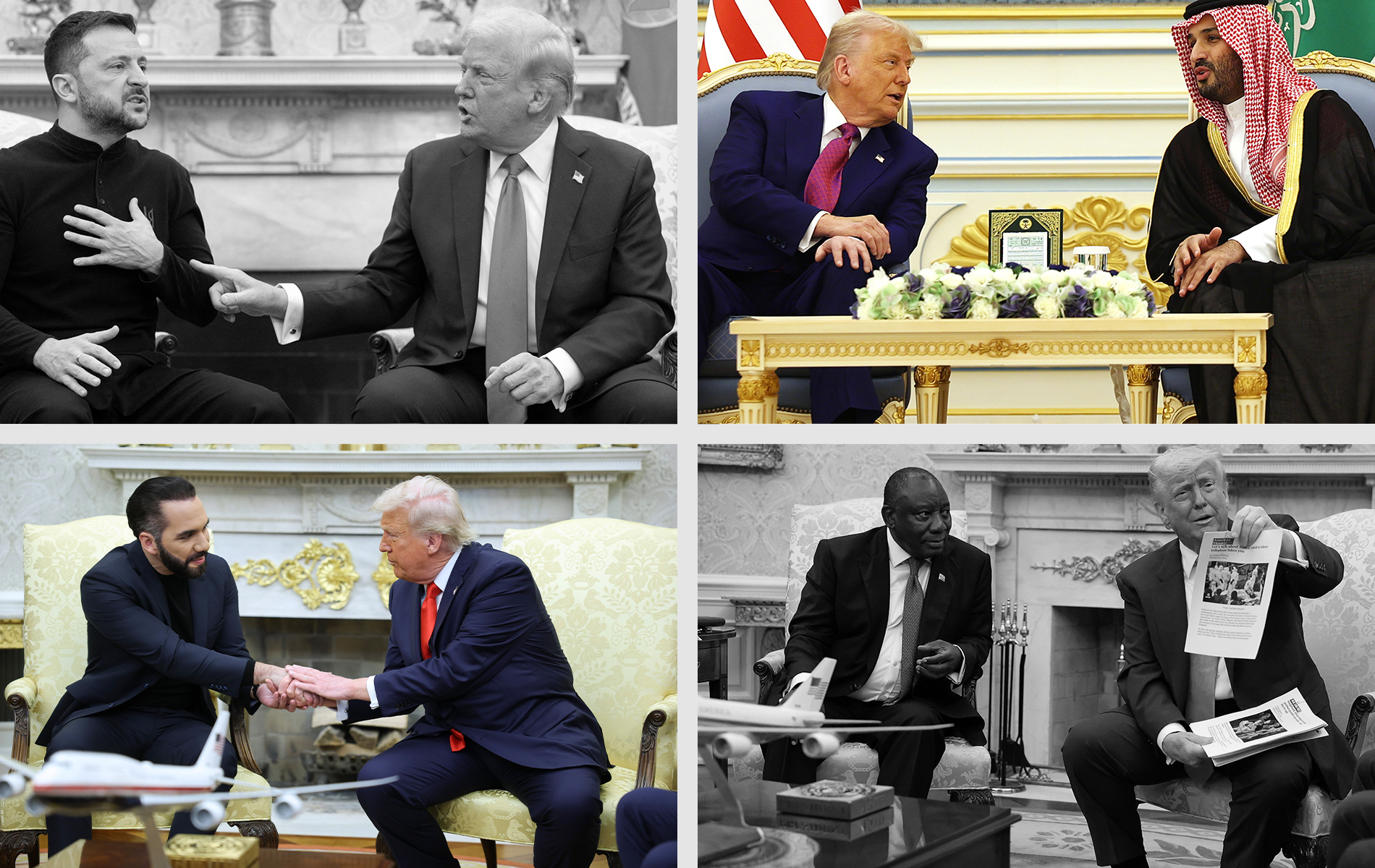

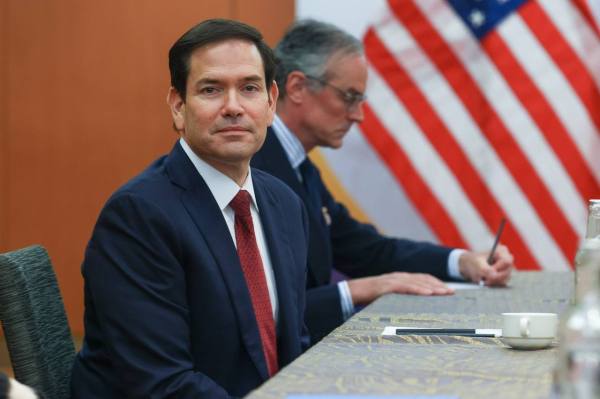
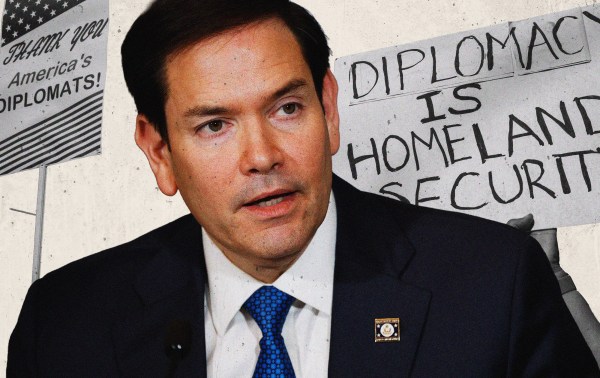
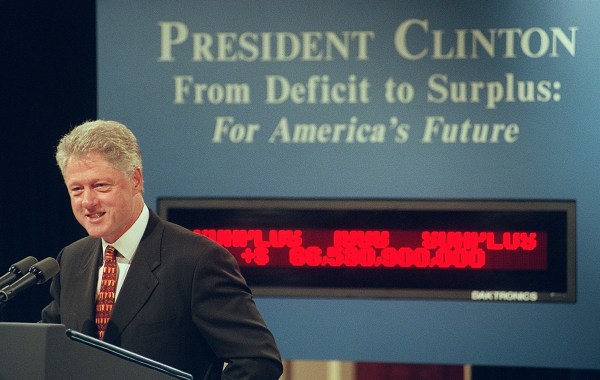
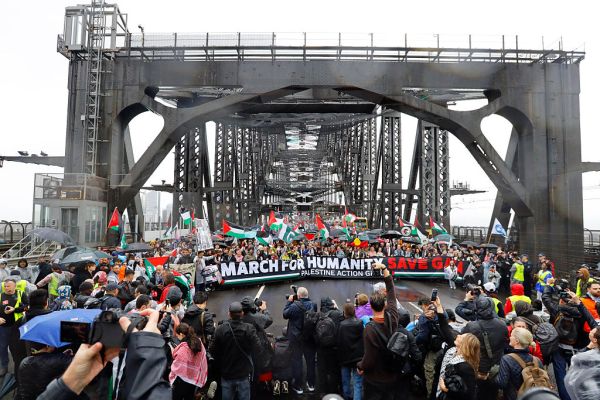

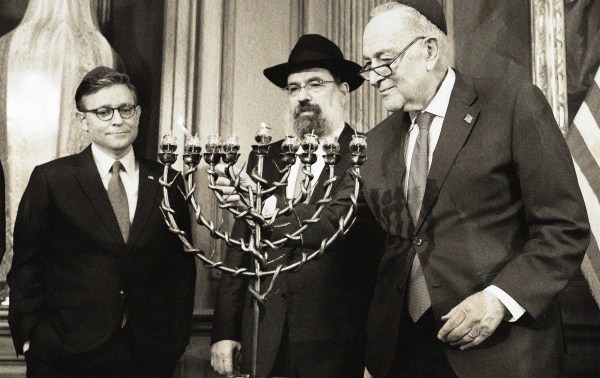

Please note that we at The Dispatch hold ourselves, our work, and our commenters to a higher standard than other places on the internet. We welcome comments that foster genuine debate or discussion—including comments critical of us or our work—but responses that include ad hominem attacks on fellow Dispatch members or are intended to stoke fear and anger may be moderated.
With your membership, you only have the ability to comment on The Morning Dispatch articles. Consider upgrading to join the conversation everywhere.